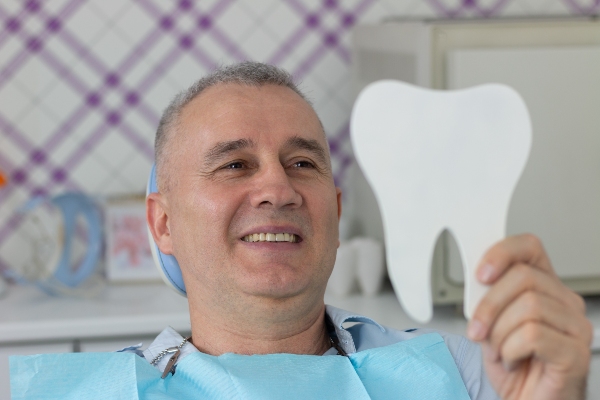 Tooth decay occurs when bacteria in the mouth damage the tooth's enamel, causing cavities.
General dentistry practices can help prevent tooth decay and treat it to avoid the pain, infection, and potential tooth loss that can result from cavities.
Tooth decay occurs when bacteria in the mouth damage the tooth's enamel, causing cavities.
General dentistry practices can help prevent tooth decay and treat it to avoid the pain, infection, and potential tooth loss that can result from cavities.
What causes tooth decay?
Bacteria in the mouth is the cause of tooth decay. When these germs combine with food, plaque is formed. This sticky film uses starches and sugars from food and drinks to create acids, which attack the tooth's enamel. Plaque can eventually harden, forming tartar, which can also contribute to gum irritation and disease.
What are the symptoms of tooth decay?
In the early stages of tooth decay, symptoms may only be detectable with a thorough general dentistry examination. However, as the condition worsens, you may experience stains on the tooth's surface, sensitivity to hot or cold temperatures, toothache, and pain when eating sweets. Cavities are also symptoms of tooth decay, as are infections that can lead to the formation of an abscess. This is a pocket of pus that can result in fever, pain, and facial swelling.
Who is at risk?
A poor diet consisting of starches and sugars is one of the main risk factors for tooth decay, along with failure to visit a general dentistry office or properly care for the teeth. However, certain groups of people are at a higher risk for tooth decay, including the following:
- Babies and toddlers often develop tooth decay, particularly when they have bottles or sippy cups with milk or juice just before bed.
- Older adults often have worn teeth and receding gums, which increases the risk that exposed root surfaces will develop decay.
- Individuals who do not produce enough saliva due to diseases, cancer treatments, or medications are more prone to tooth decay.
How does general dentistry treat tooth decay?
There are a number of potential treatments for cavities and tooth decay. Your general dentistry office will likely recommend one of the following treatments based on your individual condition.
Fluoride treatments
Fluoride found in water and added to most brands of toothpaste can assist in enamel repair by replacing lost minerals. General dentistry offices can supplement your fluoride intake with a treatment that aids the enamel in self-repair.
Dental fillings
Issues with basic cavities can be repaired by general dentistry through removal of the decayed tissue and restoration of the tooth with a composite filling. Fillings can restore the tooth's functionality and appearance and can be expected to last several years.
Root canal
If the infection in the tooth extends to the pulp, a root canal may be needed. The general dentistry professional removes the decayed part of the tooth and fills it, replacing the tooth with a crown to strengthen the tooth and restore its appearance.
Tooth extraction
The most severe instances of tooth decay include irreparable damage to the tooth's pulp. In such a case, the dentist may elect to extract the tooth.
Conclusion
Tooth decay is common but preventable. A low-sugar diet, proper oral hygiene, and regular visits to the general dentistry office will help keep teeth healthy and free of decay.
Request an appointment or call South Florida Dentistry at 305-203-4097 for an appointment in our Miami office.
Related Posts
Many people have anxiety regarding going to the dentist. General dentistry visits can be easier if you have some tools to ease your nerves and get through your appointment with minimal stress. Fortunately, there are ways to ensure that you are calmer during dental or other medical appointments.A significant number of people fear going to…
The goal of general dentistry can be expressed as treating tooth decay and oral health issues if necessary and preventing them if possible. One of the most effective tools that dentists use in the prevention of tooth decay is fluoride.The enamel is the outermost layer of the tooth. It consists of minerals that combine to…
The primary goal of general dentistry is to prevent dental diseases from occurring. However, that is not always possible. If prevention is no longer possible, the objective becomes to treat the disease.Treating dental diseases is easier and can be more effective if the dentist catches them early. There are several different screening methods used in…
